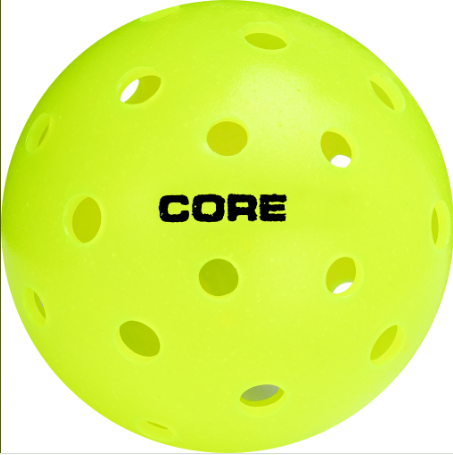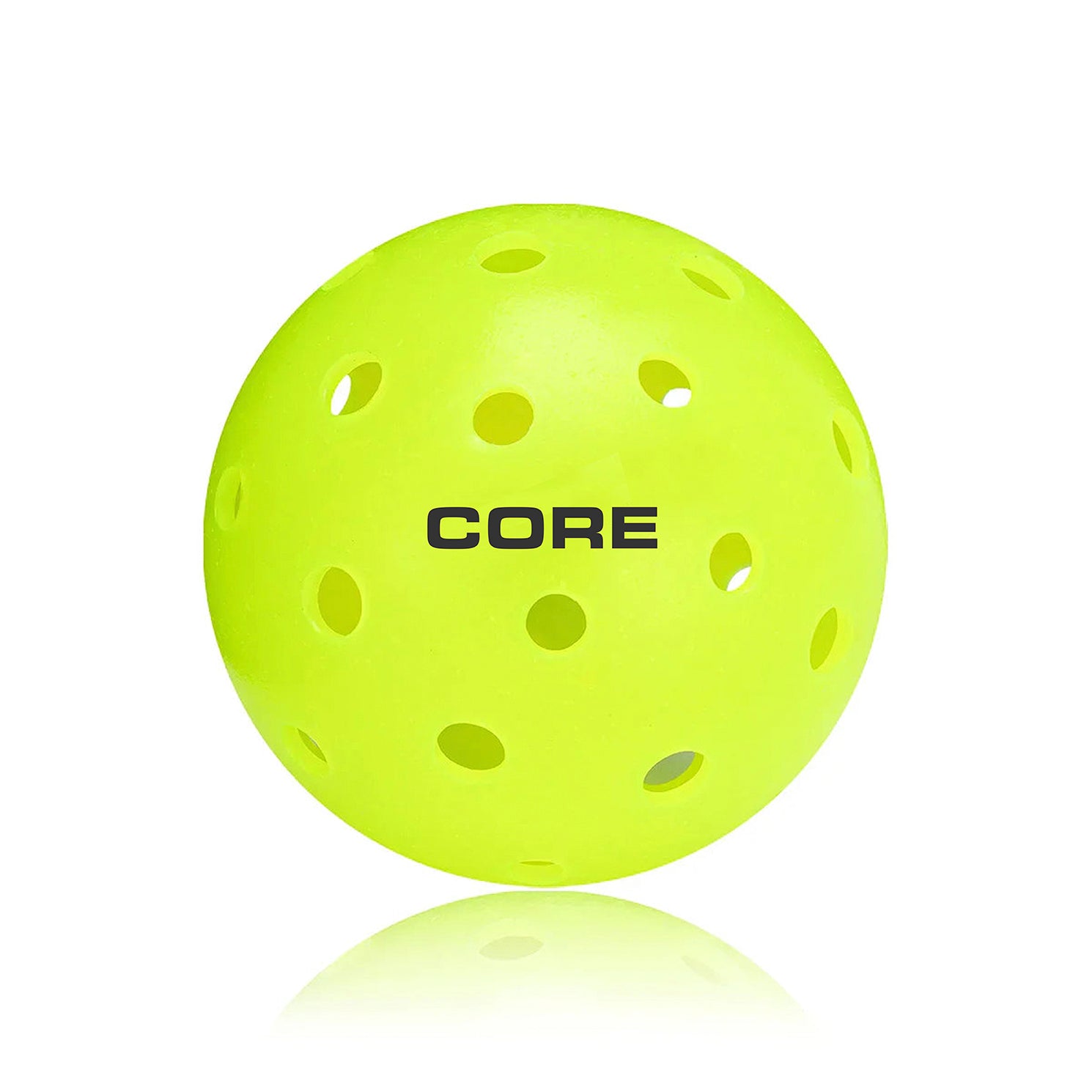The Importance of Proper Pickleball Etiquette
Pickleball is a popular and fast-growing sport that combines elements of tennis, badminton, and ping pong. With its simplicity and accessibility, pickleball attracts players of all ages and skill levels. However, just like any other sport, it's essential to understand and follow proper pickleball etiquette.
Why is Pickleball Etiquette Important?
Maintaining proper etiquette in pickleball is crucial for several reasons. First and foremost, it ensures a safe and enjoyable playing experience for all participants. By following the established rules and guidelines, players can minimize the risk of accidents, injuries, or conflicts on the court.
Proper etiquette also helps maintain a positive and respectful atmosphere during games. It promotes good sportsmanship, fair play, and camaraderie among players. When everyone adheres to the etiquette standards, the pickleball community becomes more welcoming and inclusive, encouraging more people to join and enjoy the sport.
Essential Pickleball Etiquette Guidelines
To fully embrace and promote proper pickleball etiquette, here are some essential guidelines to follow:
1. Be Mindful of Noise Levels
Pickleball can be an energetic and exciting game, but it's important to keep noise levels at an acceptable level. Excessive shouting, loud conversations, or unnecessary distractions can disrupt other players on adjacent courts. By being mindful of noise levels, players can create a focused and enjoyable environment for everyone involved.
2. Respect Court Priority
When multiple games are taking place on adjacent courts, it's crucial to respect court priority. The first game to arrive usually has the right of way, and subsequent games should wait until the current players finish their game before starting their own. This ensures a fair rotation and avoids unnecessary disruptions. Respecting court priority is essential for maintaining order and fairness in pickleball matches.
3. Allow Clear Pathways
Players waiting to play should position themselves outside the playing area to avoid obstructing the game. It is important to ensure there is enough space for players to move freely without colliding or tripping over spectators or other equipment. By allowing clear pathways, players can ensure a smooth and uninterrupted flow of the game, reducing the risk of accidents or injuries.
4. Communicate Effectively
Good communication is key to avoiding collisions and accidents on the pickleball court. Use clear and concise verbal or non-verbal cues to signal your intentions, such as calling out "mine" when going for a shot or using hand signals to indicate your next move. Effective communication enhances coordination among players and promotes a safer playing environment.
5. Mind Your Pickleball Equipment
Taking care of your equipment is not only respectful but also ensures the safety of all players. Avoid throwing or slamming paddles, and make sure to pick up and return stray balls promptly. This helps maintain a tidy and hazard-free playing environment. Additionally, regularly inspecting and maintaining equipment can prevent accidents caused by faulty or damaged gear.
6. Give Feedback Constructively
When playing with beginners or less experienced players, it's crucial to provide feedback in a constructive and supportive manner. Offer tips and suggestions politely, focusing on their improvement rather than criticizing their mistakes. This encourages a positive learning environment and helps players develop their skills. Constructive feedback fosters growth and enhances the overall playing experience for everyone involved.
7. Follow Scoring and Rule Guidelines
Every sport has its own set of rules and scoring systems, and pickleball is no exception. Familiarize yourself with the official rules and guidelines, and ensure they are followed consistently. This promotes fair play and reduces the chances of disputes or conflicts during games. Understanding and adhering to the rules creates a level playing field and enhances the integrity of the sport.
8. Be Honest and Fair
Honesty and fairness should be the cornerstone of any pickleball game. Admitting when a ball is out or when you've committed a fault is essential to maintaining the integrity of the game. Cheating or intentionally bending the rules not only undermines the spirit of pickleball but also diminishes the experience for everyone involved. Emphasizing honesty and fair play creates a positive and trustworthy environment on the court.
9. Clean Up After Yourself
To foster a clean and pleasant playing environment, it's important to clean up after yourself. Dispose of any trash, water bottles, or other waste properly, and leave the court in the same condition (or better) than when you arrived. This shows respect for the facilities and consideration for other players. A clean and well-maintained court enhances the overall experience for everyone and reflects a sense of responsibility and pride within the pickleball community.
10. Enjoy the Game!
Ultimately, pickleball is meant to be enjoyable and fun for all participants. Embrace the friendly and social aspects of the sport, and remember to have a good time. By following proper etiquette and demonstrating good sportsmanship, you contribute to a positive pickleball community and make the game more enjoyable for everyone. Remember that pickleball is not just about winning or losing; it's about the experience and the connections made through the sport. So, grab your paddle, follow the rules, and enjoy the game!
Conclusion
Proper pickleball etiquette plays a vital role in ensuring a safe, enjoyable, and inclusive playing experience for all participants. By following the essential guidelines outlined above, players can foster a positive atmosphere of respect, fair play, and camaraderie. Let's embrace and promote proper pickleball etiquette to create a thriving and welcoming pickleball community. So, grab your paddle, follow the rules, and enjoy the game!
FAQ
1. Why is pickleball etiquette important?
Maintaining proper pickleball etiquette is important because it ensures a safe and enjoyable playing experience for all participants. It also promotes good sportsmanship, fair play, and camaraderie among players.
2. What are some essential pickleball etiquette guidelines?
Some essential pickleball etiquette guidelines include being mindful of noise levels, respecting court priority, allowing clear pathways, communicating effectively, minding your pickleball equipment, giving feedback constructively, following scoring and rule guidelines, being honest and fair, cleaning up after yourself, and enjoying the game.
3. Why is it important to respect court priority?
Respecting court priority is important because it ensures a fair rotation and avoids unnecessary disruptions. It helps maintain order and fairness in pickleball matches when multiple games are taking place on adjacent courts.
4. How does effective communication enhance the playing environment in pickleball?
Effective communication enhances the playing environment in pickleball by avoiding collisions and accidents on the court. Clear and concise verbal or non-verbal cues help signal intentions and enhance coordination among players, promoting a safer playing environment.





